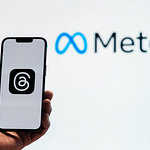Welcome to Episode 55 of The Transcript Podcast
Episode Summary:
In this episode, we discuss if the fed is out of touch in terms of inflation, AVOD vs SVOD in streaming, and reflections from Google's former CEO Eric Schmidt.
The episode is based on yesterday's newsletter which is available on Substack. A transcript of this podcast, with relevant images and quotes, is available for subscribers only, after the show notes below.
Show Notes:
00:00:00 Introduction
00:00:04 The Fed is out of touch
00:02:00 Executives keep an optimistic outlook on supply chains
00:00:00 Introduction
Episode Transcript:
Introduction
[00:00:00] Scott: Welcome everyone. We sent out a new issue of the newsletter yesterday.
The Fed is out of touch
What we're seeing is a continuation, still a lot of concern over inflation in the economy and we're seeing that broadly in a lot of different places. The thing that stood out to me most was the juxtaposition of two quotes during the week. One was from Restoration Hardware’s CEO which talked about Fed policy and asking - - is the Fed listening to anybody? Have they picked up the phone and talked to anybody and asked them what they're seeing in inflation? - - and just kind of suggesting that the Fed is a little out of touch on this. And then the second quote that came right after it was from a Fed member, who talked about the Fed is on top of this, sees that there's inflation that's bad inflation. The justification for the inflation was like the greatest Marie Antoinette’s ‘let them eat cake’ moment I've ever seen where he said I was talking to a contact and he was saying that golf club dues are rising at a rapid and that he may have to play his local municipal golf course going forward. So I guess that's what really gets the Fed's attention is when golf dues are rising. That's what I learned this week
What do you think Erick?
[00:01:04] Mokaya: That was a bit funny. I was expecting him to say costs like maybe in grocery stores where normal people are shopping but then again his source of information is a golf club where maybe he plays or something. But that was pretty interesting, but at least it's good that they are noticing that they see inflation.
It surprises us though. They say they're data driven yet what they have is an anecdote sometimes. But it worries me. It worries me a lot that across board, a lot of prices are rising. RH, I think they, Restoration’s earnings call was one of the most candid ones you could find. They were very honest that prices are rising everywhere.
They also said that companies are having to choose between raising prices or reducing the quality of the products. And a couple of times I've gone to the store this week, I've seen the sizes of the products have reduced drastically if they're maintaining the same price or the price has actually gone up. Anything else you might have noticed?
Executives keep an optimistic outlook on supply chains
[00:02:00] Scott: Yeah. The supply chain stuff, still not getting too much better. I do feel like we are seeing people starting to say the first half it's bad and hoping the second half of the year is going to get better. That's better than it has been in the past. But…I don’t know. What do you think?
[00:02:18] Mokaya: Yeah, I think maybe most executives trying to be more optimistic for the second half of the year, but I noticed this also last year. They try, even if the near term is a big challenge, they always try to be at least optimistic in medium to long-term. So I think maybe that's why they are lifting up their eyes and hoping at least the situation in Ukraine gets resolved as quickly as possible so that things can come back to a bit normal. But I think it's a challenging environment for most CEOs to be operating in.
Ongoing dilemma between subscription and ad-based models
So something that stood out for me was of course the - - something we've been tracking for a while about a subscription-based model versus advertising models. So very interesting to see the quote from Chicken Soup for the Soul saying that SVAD, which is subscription-based is slowing down and churn is rising. And because of that, then companies are having to actually really explore the issue of advertising based tiers. Any thoughts on that yourself?
[00:03:17] Scott: Yeah. I think this is something we've been covering a lot for the last few weeks and a lot has gone on here. I think we have noticed this trend towards probably having a more ad supported model for a lot of the different video content players.
And then last week we didn't have a podcast but YouTube announced that they were going to be putting more content on the YouTube platform, which I think is a hundred pound gorilla just coming through. I think that's huge if YouTube is putting this content on. You and I had talked a lot about like, okay, we see this trend, but not exactly sure who's going to benefit from it, how they're going to benefit.
Chicken Soup for the Soul, it was super interesting. I didn't realize that this like a microcap company that has a semi buyable advertising based platform. And then I think Roku is another one that could potentially benefit from this, but both of them could potentially be fighting YouTube on one side for all of these content licenses.
I'm not exactly sure how it's going to shake out, but it certainly seems like if Netflix offered an ad supported model, if Hulu offered a ad supported model, which Hulu does, consider being a patron of it, but the entree to the website to of like coming in, it's totally free, you don't need to log in, and you're just clicking immediately. That YouTube-like experience is pretty compelling. So, I dunno. I mean, I think Chicken Soup for the Soul long story short, it's a hundred billion dollar market cap. It may be worth the flier here.
[00:04:43] Mokaya: Yeah, sure. I think so. But I think also a big winner if they choose this model, I mean, they don't need to offer an exclusive ad based model. It could be like a combined model where they offer for those who don't want any ads at all. You have your premium tier and then you have the ad-based tier for everyone else who wants to be there a couple of times and enjoy ads at the same time during the break. Instead of pausing, then you can have like ads or something like that.
So I think Netflix might find themselves at some point - - I was actually reading their earnings call, the last earnings call. They were asked about the same question and their response was to quote the CEO, he said that it's not like we have a religion against advertising to be clear, but if at some point because maybe of consumer experience consumer choice, and what's great for creators and storytellers, if we determine that we have the right kind of player within the space and it meets those dimensions, then that's something that we can put in our plans, but not right now.
"Now for us, it's not like we have religion against advertising to be clear. I mean we're -- we said we're focused is on building optimizing for long-term revenue, big profit pools. And we want to do it in a way that is a great experience for our members, great for. So we lean into consumer experience, consumer choice and what's great for our creators and storytellers. So if at some point, we determine something that we have the right to kind of player within the space and it meets those dimensions, then great. But that's not something that's in our plans right now." - Netflix (NFLX) CFO Spence Neumann
[00:05:44] Scott: I think there are some pretty strong headwinds to Netflix growth that I keep hearing, not only in earnings calls around different companies that we're listening to, but I'm also hearing it just anecdotally from friends and family and people who are thinking about changing their Netflix subscription, or, you know, dropping some of these SVOD subscriptions. The fact that churn is going up, it's a real headwind essentially for these stocks that, for Netflix especially they could overhang for a bit. So if you're a Netflix shareholder this could be a decent time to be [trimming].
[00:06:21] Mokaya: Yeah, definitely because this is a time when they're really reconsidering the business model. There was an article, I don't know if it's New York times this week that said that the CEOs emphasized twice to the employees that they need to pay attention to the bottom line. So I guess when you hear that, usually it's when the growth has kind of stalled a little bit. So then like you need to cut down our costs to maintain margins or at least to grow them for a little while as you rethink the model.
[00:06:50] Scott: These sorts of anecdotes are the things that like big earnings messes or beta, like I could totally see next quarter, we have Netflix down 20% on the day that they reported earnings because they miss Schreiber numbers. Like this is something that people should be paying attention to.
Brands dropping intermediaries
[00:07:08] Mokaya: On the other hand, there's something that I also noted. Nike reported earnings a couple of weeks ago, I think two weeks ago. And then surprisingly Adian, which is a payments platform, noticed something which I also noted about Nike. Now I think 40% of their revenues are generated from B2C commerce, which is very interesting, meaning that, and this is a trend that Adian picked, where they're saying that a lot of manufacturers and a lot of companies are deciding to own the customer, the direct relationship with the customer without having an intermediary at the end of the day.
So they don't want to pay the toll to access their consumers. You want to own it directly so that you can max out your earnings, so to speak. So it's a common trend that will be very interesting to pay attention to in the market. Anything that you want to add there?
[00:08:02] Scott: Yeah. I mean, I think this is something that is one of those big relational trends that we're probably in the third or fourth inning, if not even farther along, but it's just one of those things the internet has fundamentally changed. And I totally agree with you. This was a big quote last week that we didn't get a chance to podcast about, but the fact that Nike has withdrawn, I think they said 40% of their wholesale channels, where they were selling their merchandise.
It's just hard to be a boutique that sells a lot of different brands anymore. That brand is direct to consumer. It's just so easy today to get a direct response from a consumer on the internet, or develop a relationship directly with your audience. But especially if you're a big brand like Nike it's higher margin to cut out the middleman or not have somebody in the middle and just fulfill direct to consumer. So that's an important one to track.
[00:08:55] Mokaya: Yep. I think that's a very important one to keep track of. Before we close there’s that quote by Eric Schidt. I posted it on Twitter and it got a little traction about Google being early on social media but missing out entirely. I made a joke that if Google had succeeded we’d be on Google plus now, and not on Zuck-verse. Any thoughts of that, especially from your perspective in the US. What made Google fail so miserably at social media?
[00:09:24] Scott: I dunno, it's a good question. I wasn't really framing it in my head is what made Google fail, more just like I have a tremendous amount of respect for Eric Schmidt as a CEO. I think he was excellent at Google and kind of complete juggernaut. And even though he's he bemoans missing social media, like Google is the best position out of any of the tech companies today, probably. Especially with this with the changes that apple made for privacy that are hitting Facebook, Google is completely.
Immune to it because search is such an important pillar of the internet. And then not only do they have search, they also have YouTube, which I think they bought YouTube for like a billion dollars or something back in the day, which is like, again, just like what we were talking about this AVO D no, one's going to compete against YouTube.
If YouTube wants to go into the, into this into this market. And so why did they fail at social? I'm not exactly sure, but the bigger actually part of the quote that struck me was Eric Schmidt. If you had told me how big Google was going to get, I would've, I wouldn't have believed you basically. But he was as surprised as anybody and it just reminds me, but like, even when you're in the pilot seat of an organization, that's going to be maybe the defining organization of the information technology era.
It's hard to see. It's hard to see that exponential growth.
[00:10:47] Mokaya: It's true. So and that, that applies also even to a small organization, you have the transcript you're actually hitting one year in a month time. And the growth has been incredible for us even on the premiums and petition side. So it's be interesting, those quotes that we saw there.
So I think that's a good point to close. Thank you so much for joining us this week. See you again next week for another episode as we gear up for ending season. Thank you. And bye.
[00:11:13] Scott: Thank you.














Share this post